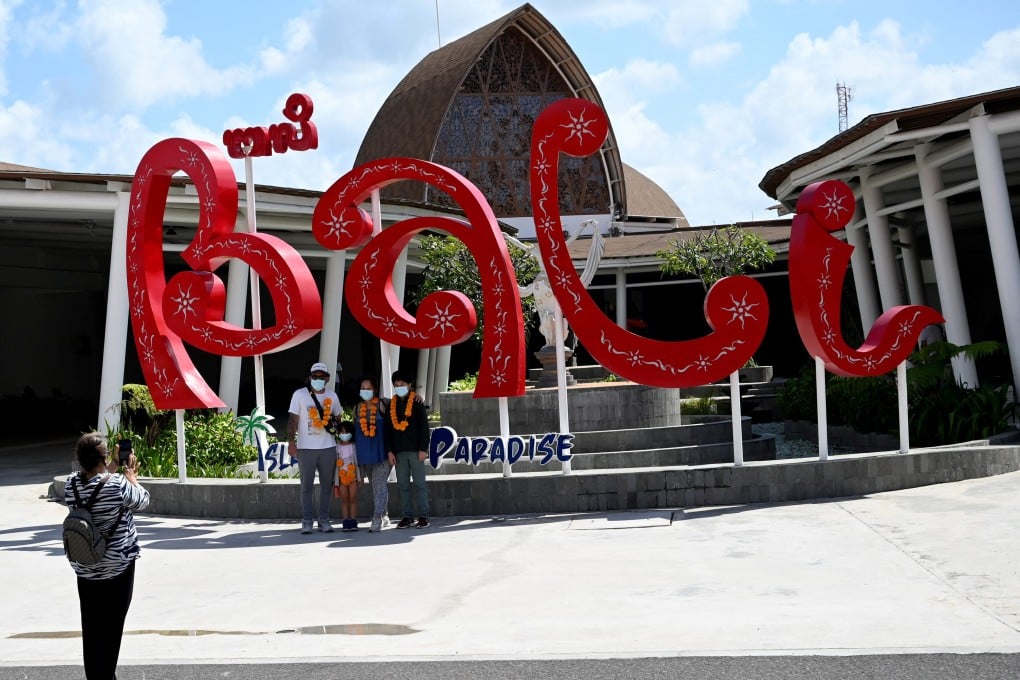Bali vs Phuket: which Asian resort island will win the race to restart international tourism?
- The economies of the popular destinations have collapsed since the coronavirus put a stop to foreign arrivals
- But reopening too much, too soon would make severe epidemics and sustained economic downturns ‘highly likely’

While scores of countries are reintroducing border closures and travel restrictions to mitigate fresh waves of Covid-19, Southeast Asia’s two most popular resort islands – Bali and Phuket – are in a race to open to international tourism.
The stakes in terms of potential benefits and risks are high. The economies of both have been on life support since the coronavirus was declared a pandemic a year ago.
In Bali, which attracted 6.3 million foreign visitors in 2019, GDP shrank 9.3 per cent year on year in 2020, while the unemployment rate of 5.6 per cent is nearly four times higher than the previous year. Phuket, which welcomed a whopping 9.9 million foreign visitors in 2019, saw its economy contract 6.1 per cent last year, and 80 per cent of its tourism-related businesses go bust.
As dramatic as these official government figures may sound, they don’t even begin to paint a complete picture of all that has been lost.
The informal economy in Thailand employs about 63 per cent of the workforce, according to the International Labour Organization. In Indonesia, informal jobs – everything from freelance drivers and tour guides to people working in backyard laundries or selling satay sticks on the side of the road – account for 70 per cent of the workforce. Factor in a couple of dependents for each of the jobless – a wife and baby, a sister at university or a frail grandmother who needs expensive arthritis medicine – and you’ll begin to see how dire the situation really is.
In Bali alone, estimates by non-governmental organisations suggest a million people – close to a quarter of the population – are facing a near-impossible task in making ends meet.
